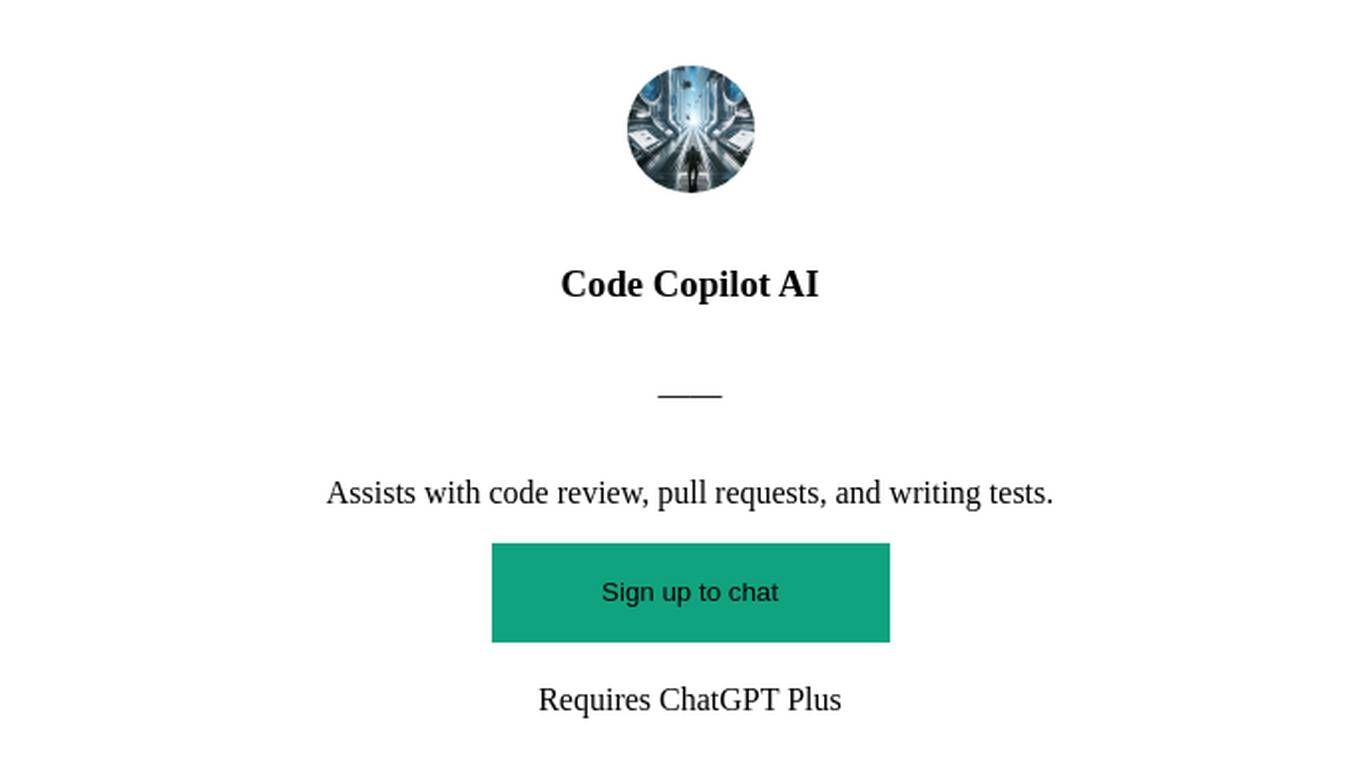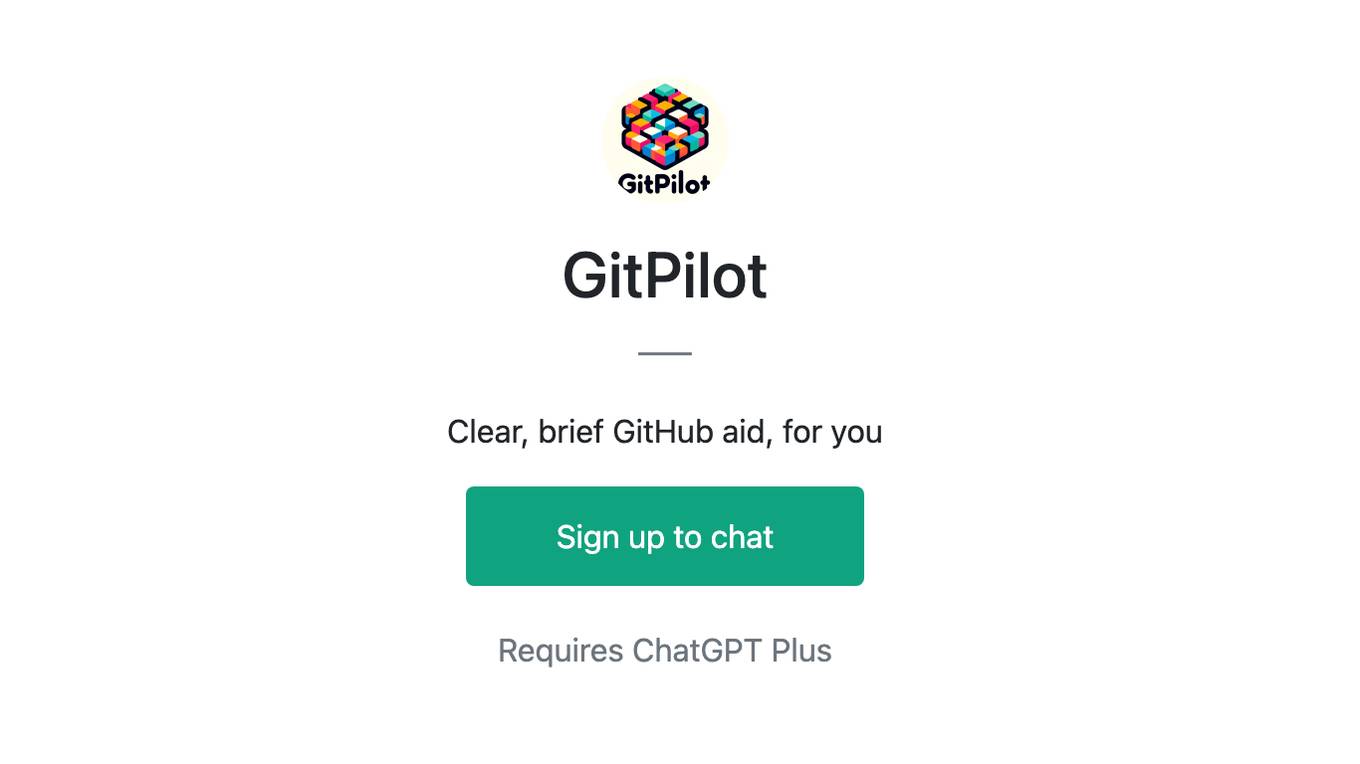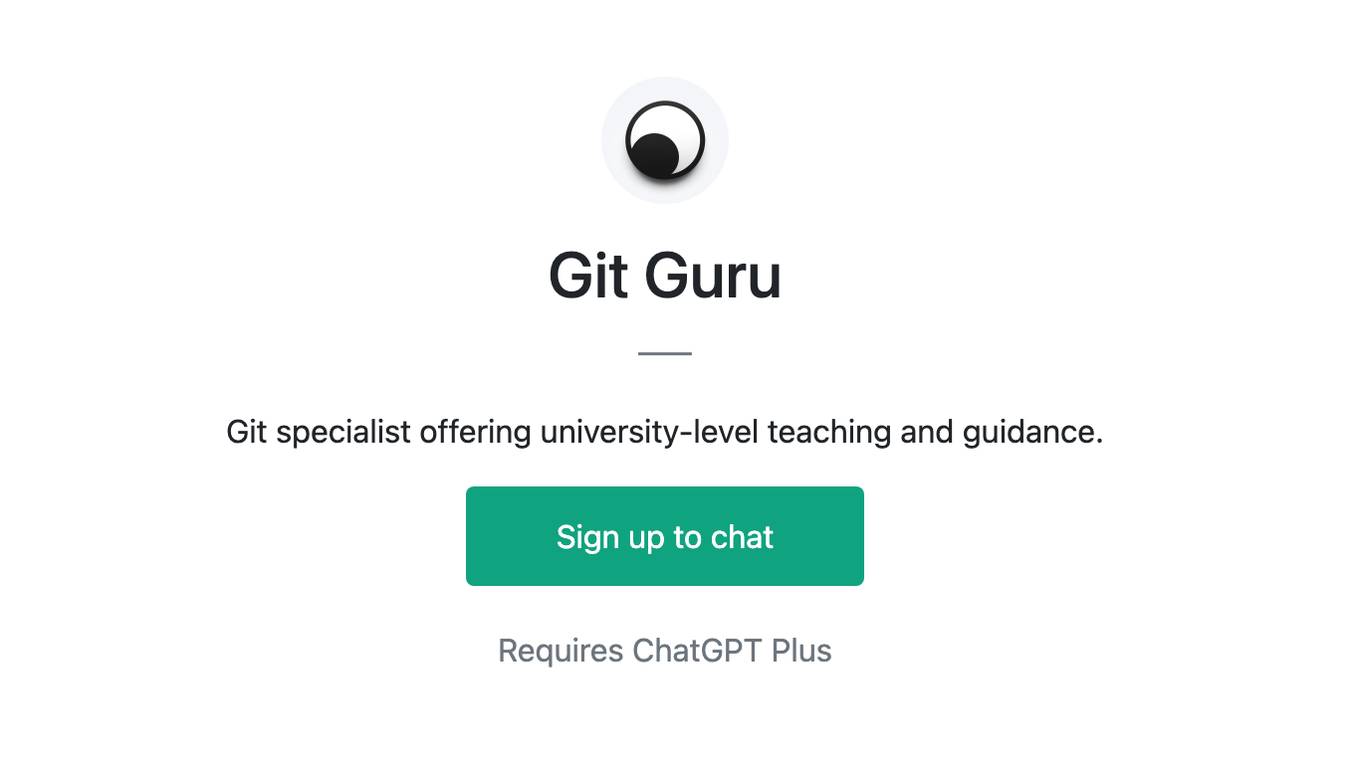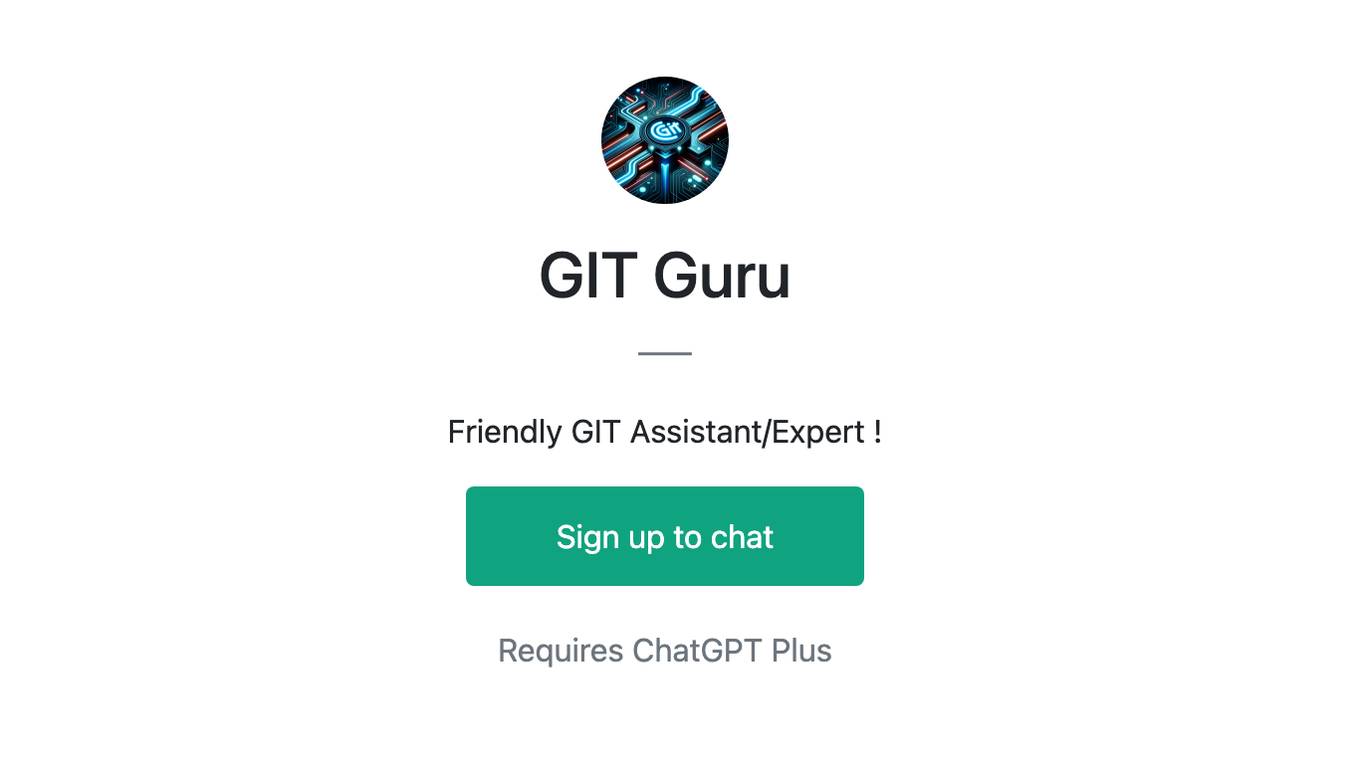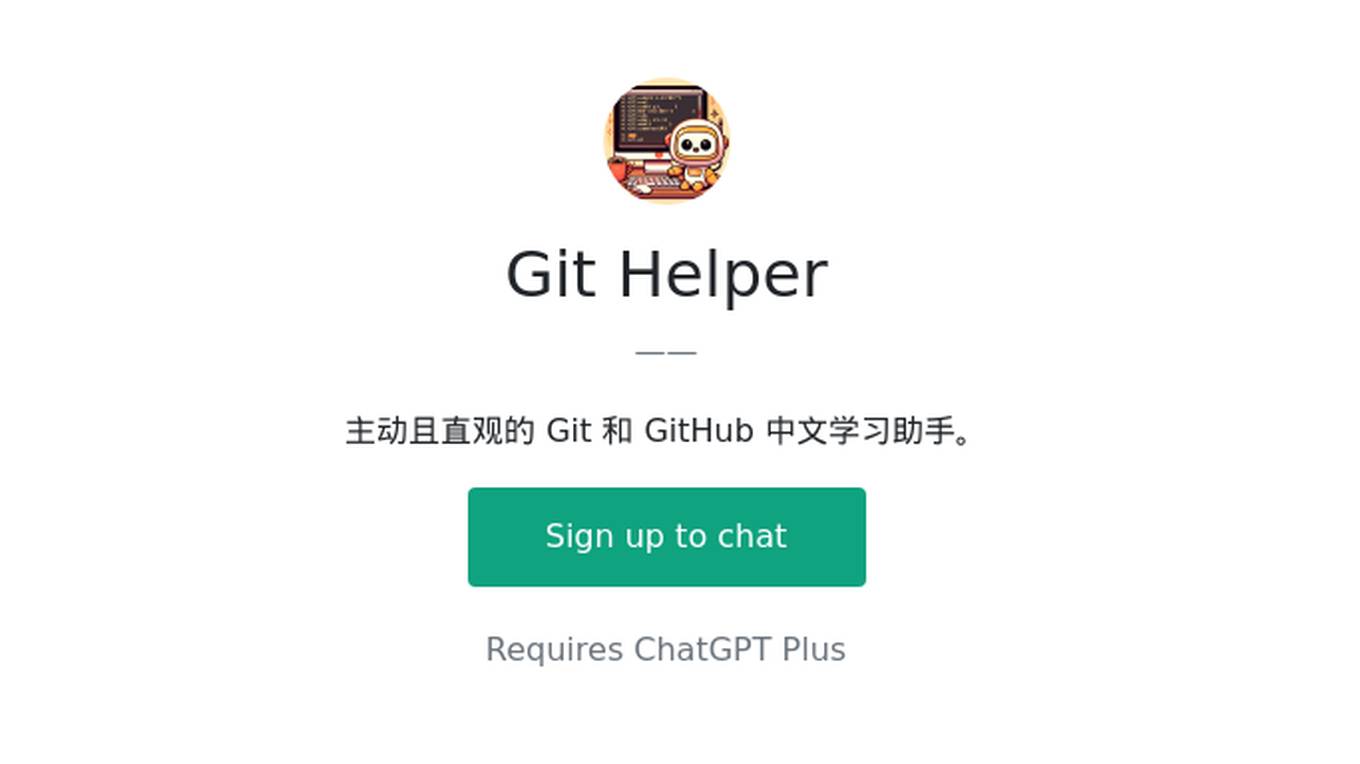Best AI tools for< Pull Requests >
20 - AI tool Sites
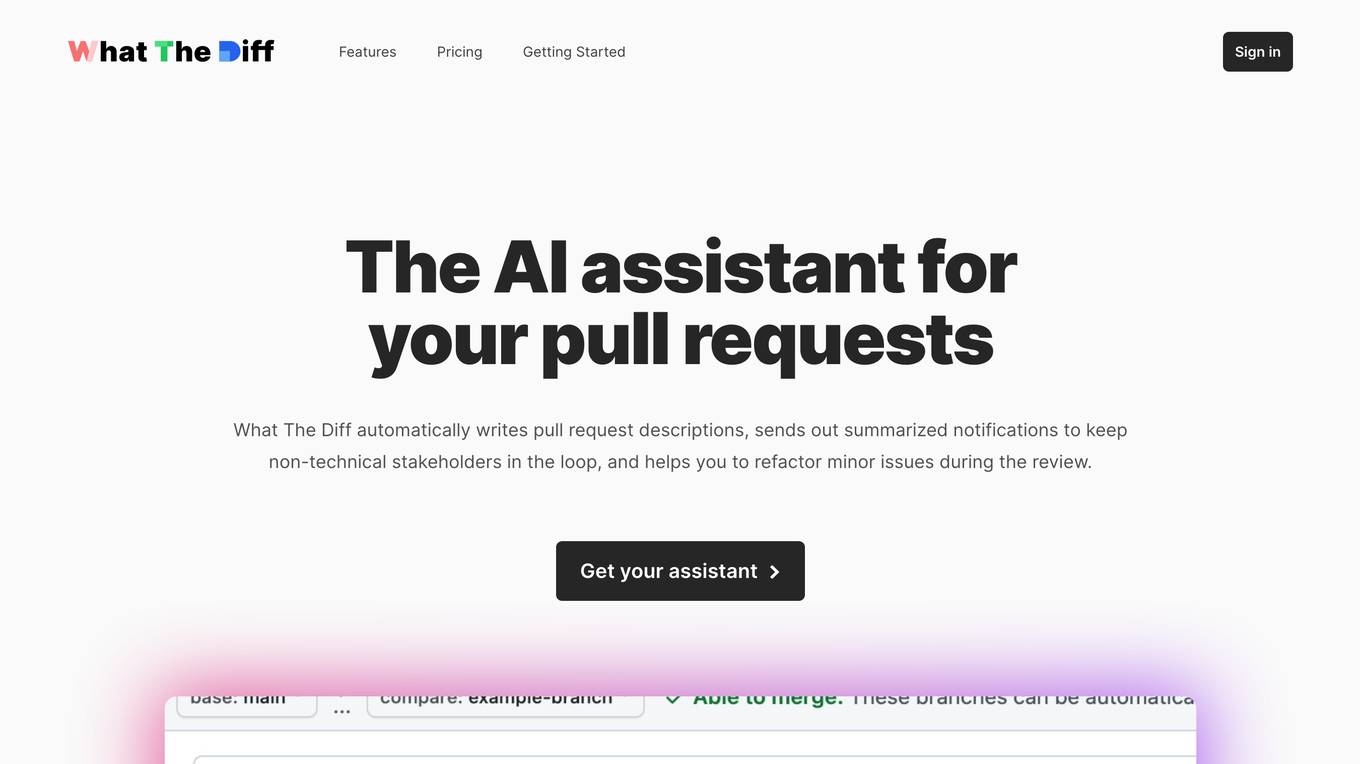
What The Diff
What The Diff is an AI-powered code review assistant that helps you to write pull request descriptions, send out summarized notifications, and refactor minor issues during the review. It uses natural language processing to understand the changes in your code and generate clear and concise descriptions. What The Diff also provides rich summary notifications that are easy for non-technical stakeholders to understand, and it can generate beautiful changelogs that you can share with your team or the public.
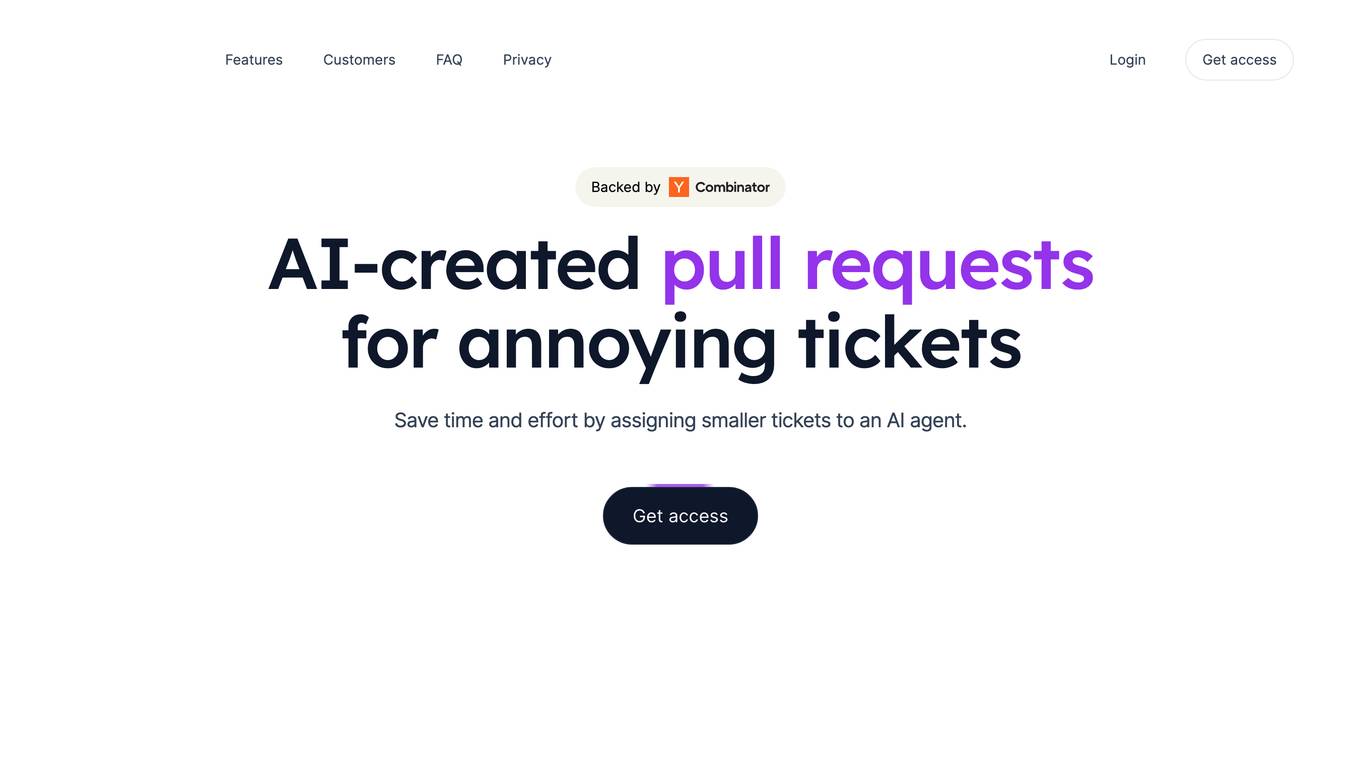
Tusk
Tusk is an AI-powered automated testing platform that helps engineering teams generate high-quality unit and integration tests with codebase and business context. It runs on pull requests to suggest verified test cases, enabling faster and safer code shipping. Tusk offers features like shift-left testing, autonomous test generation, self-healing tests, and seamless integration with CI/CD pipelines. Trusted by engineering leaders at fast-growing companies, Tusk aims to improve test coverage and code quality while reducing the release cycle time.
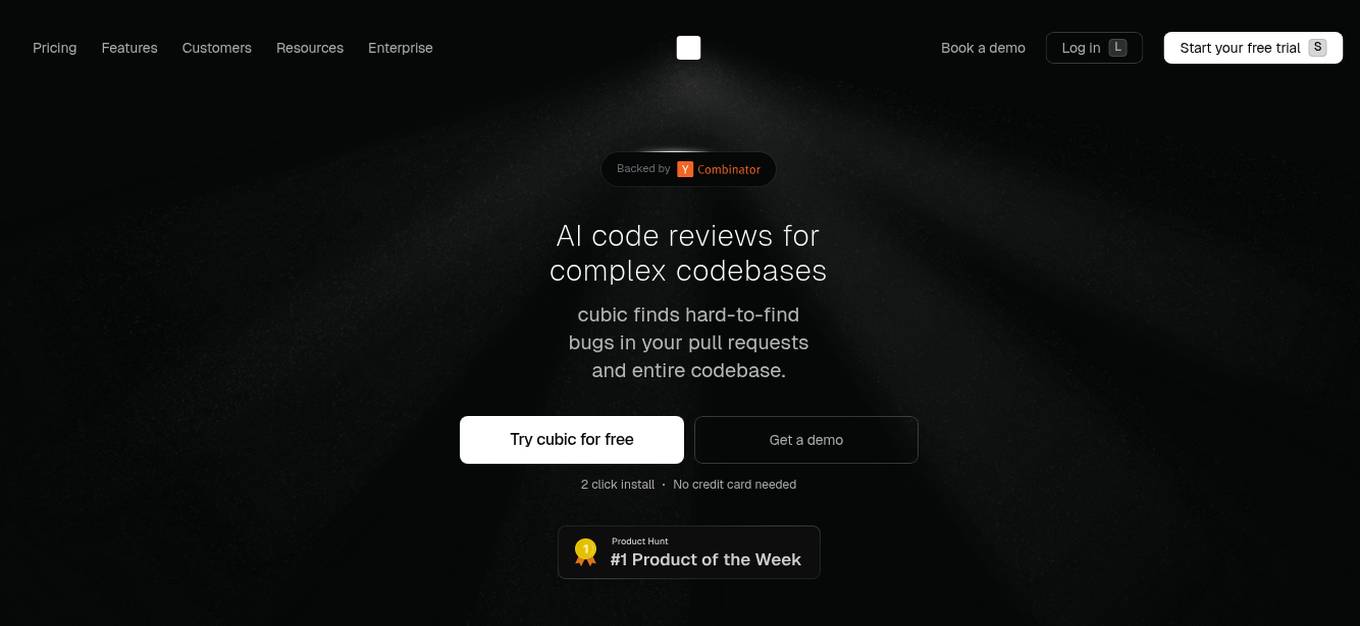
cubic
cubic is an AI-native code-review platform that leverages artificial intelligence to conduct code reviews for complex codebases. It helps teams identify hard-to-find bugs in pull requests and the entire codebase, providing context-aware feedback and summaries to enhance the review process. cubic continuously scans codebases for bugs and vulnerabilities, triages issues, enforces coding standards, and learns from team feedback to improve over time. The platform offers features like automatic PR descriptions, one-click issue fixes, intelligent diff ordering, and visualizing high-level changes. With a focus on security and privacy, cubic ensures that code remains secure and private by not storing or training AI on the code. It supports various programming languages and offers different pricing plans tailored to different team sizes and needs.

Frugal
Frugal is an intelligent application cost engineering platform that optimizes code to reduce cloud costs automatically. It is the first AI-powered cost optimization platform built for engineers, empowering them to find and fix inefficiencies in code that drain cloud budgets. The platform aims to reinvent cost engineering by enabling developers to reduce application costs and improve cloud efficiency through automated identification and resolution of wasteful practices.
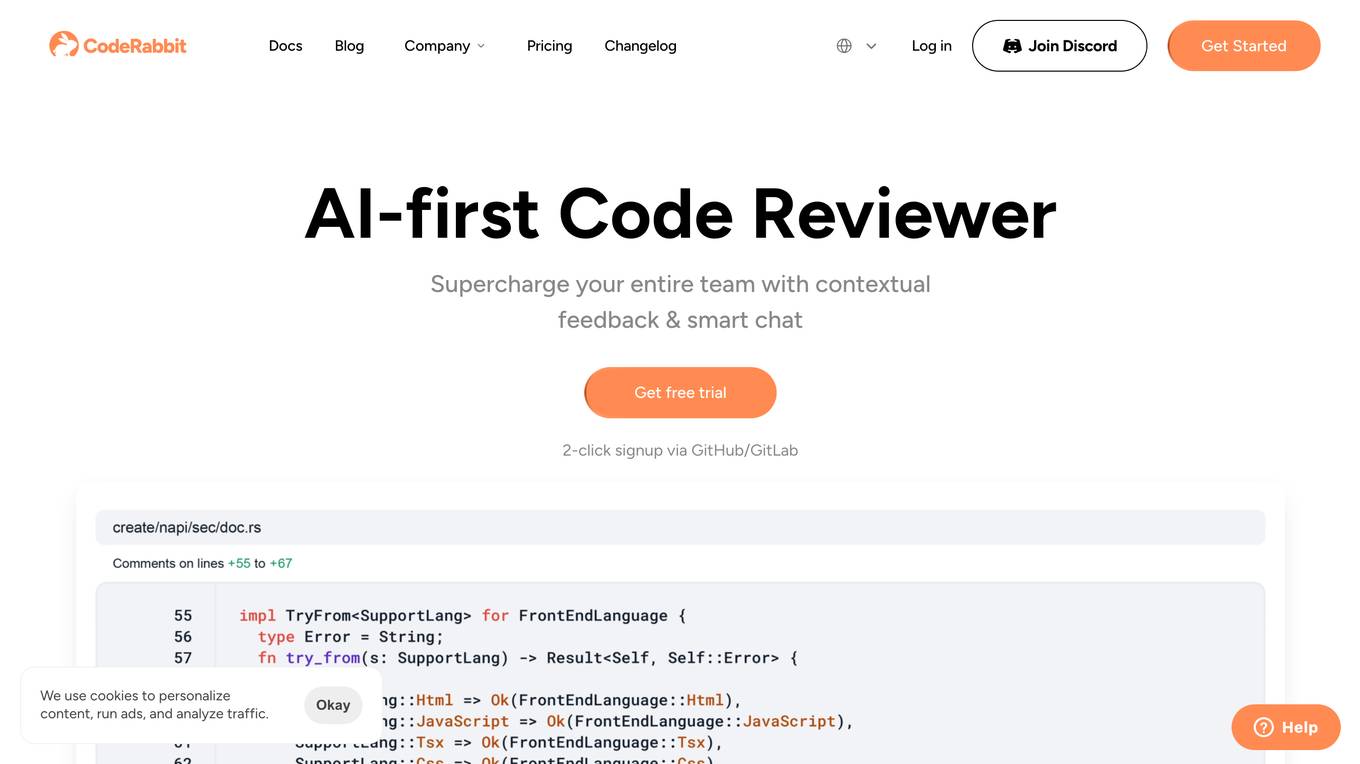
CodeRabbit
CodeRabbit is an innovative AI code review platform that streamlines and enhances the development process. By automating reviews, it dramatically improves code quality while saving valuable time for developers. The system offers detailed, line-by-line analysis, providing actionable insights and suggestions to optimize code efficiency and reliability. Trusted by hundreds of organizations and thousands of developers daily, CodeRabbit has processed millions of pull requests. Backed by CRV, CodeRabbit continues to revolutionize the landscape of AI-assisted software development.
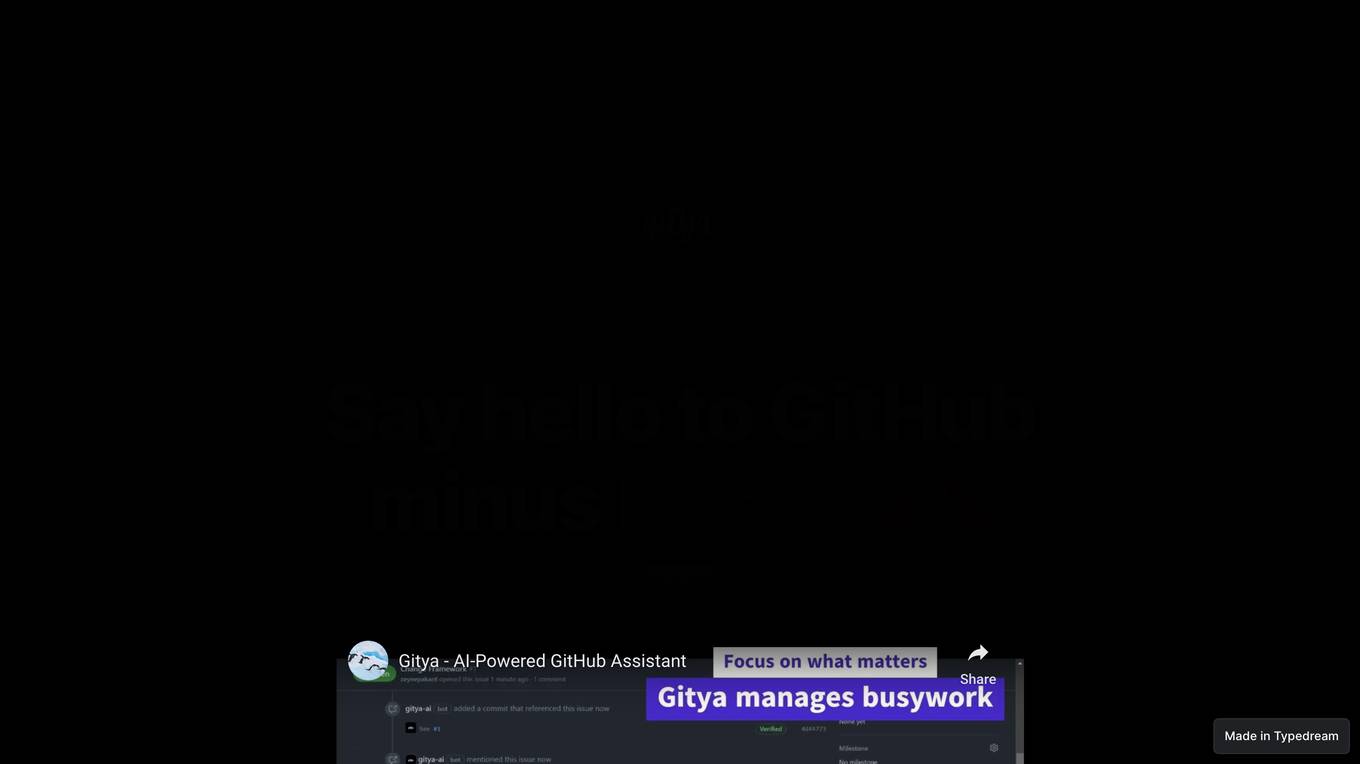
Gitya
Gitya is an AI-powered GitHub assistant designed to streamline your GitHub workflow by automating minor tasks and enhancing productivity. With features like GitHub App integration, AI-enhanced automation, PR management, and ticket automation, Gitya aims to help users spend less time on busywork and more time on high-impact engineering tasks. Users have praised Gitya for its ability to reduce time spent on bug fixes and PR management, ultimately leading to increased project efficiency and success.
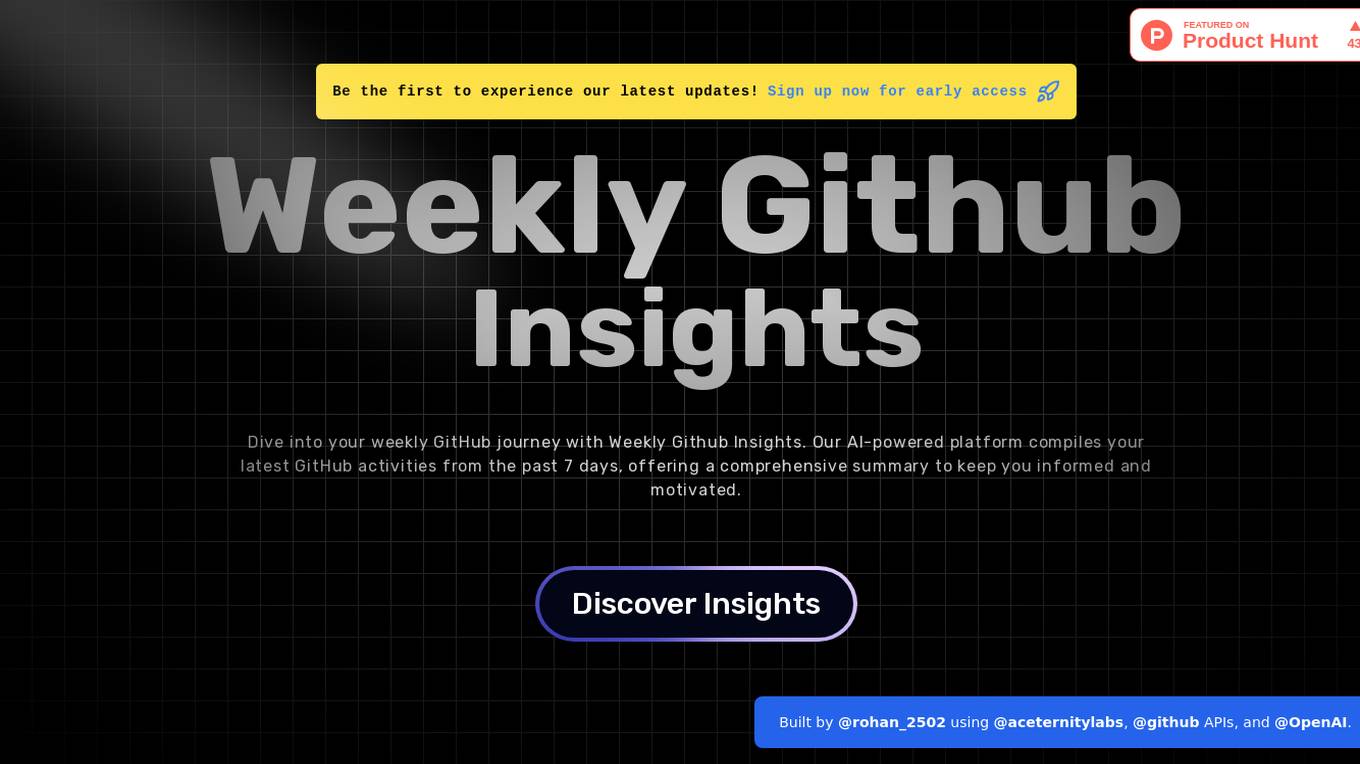
Weekly Github Insights
Weekly Github Insights is an AI-powered platform that provides users with a comprehensive summary of their latest GitHub activities from the past 7 days. It aims to keep users informed and motivated by compiling their weekly GitHub journey. The platform is built by @rohan_2502 using @aceternitylabs, @github APIs, and @OpenAI.
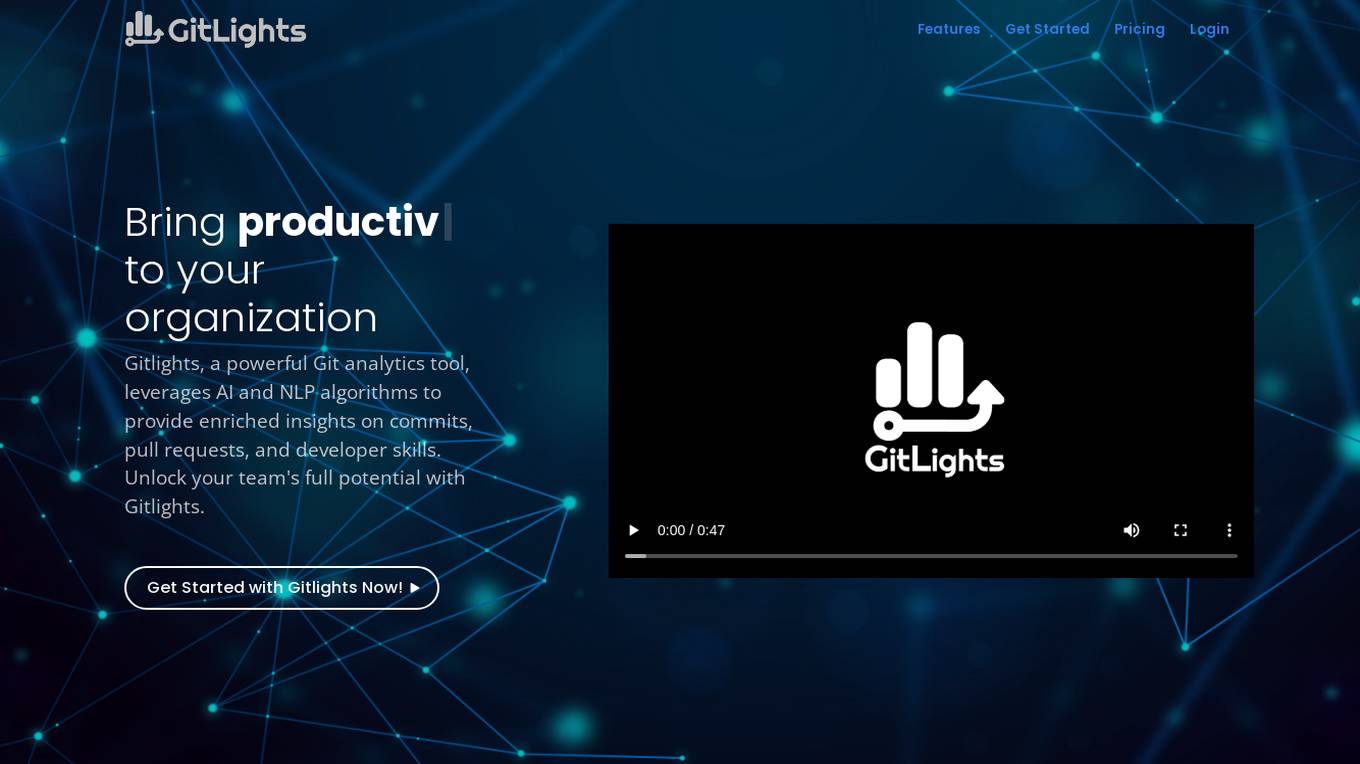
Gitlights
Gitlights is a powerful Git analytics tool that leverages AI and NLP algorithms to provide enriched insights on commits, pull requests, and developer skills. It empowers teams with advanced analytics and insights, revolutionizing the development process. Gitlights offers features such as insightful commits and pull requests dashboard, advanced developer skills analysis, strategic investment balance monitoring, collaborative developers map, and benchmarking comparison with other teams. With Gitlights, users can stay ahead with comparative data, receive smart notifications, and make informed decisions based on precise and detailed data. The tool aims to provide a holistic view of a development team's activity, driving strategic decision-making, continuous improvement, and excellence in collaboration.

GPTConsole
GPTConsole is an AI-powered platform that helps developers build production-ready applications faster and more efficiently. Its AI agents can generate code for a variety of applications, including web applications, AI applications, and landing pages. GPTConsole also offers a range of features to help developers build and maintain their applications, including an AI agent that can learn your entire codebase and answer your questions, and a CLI tool for accessing agents directly from the command line.
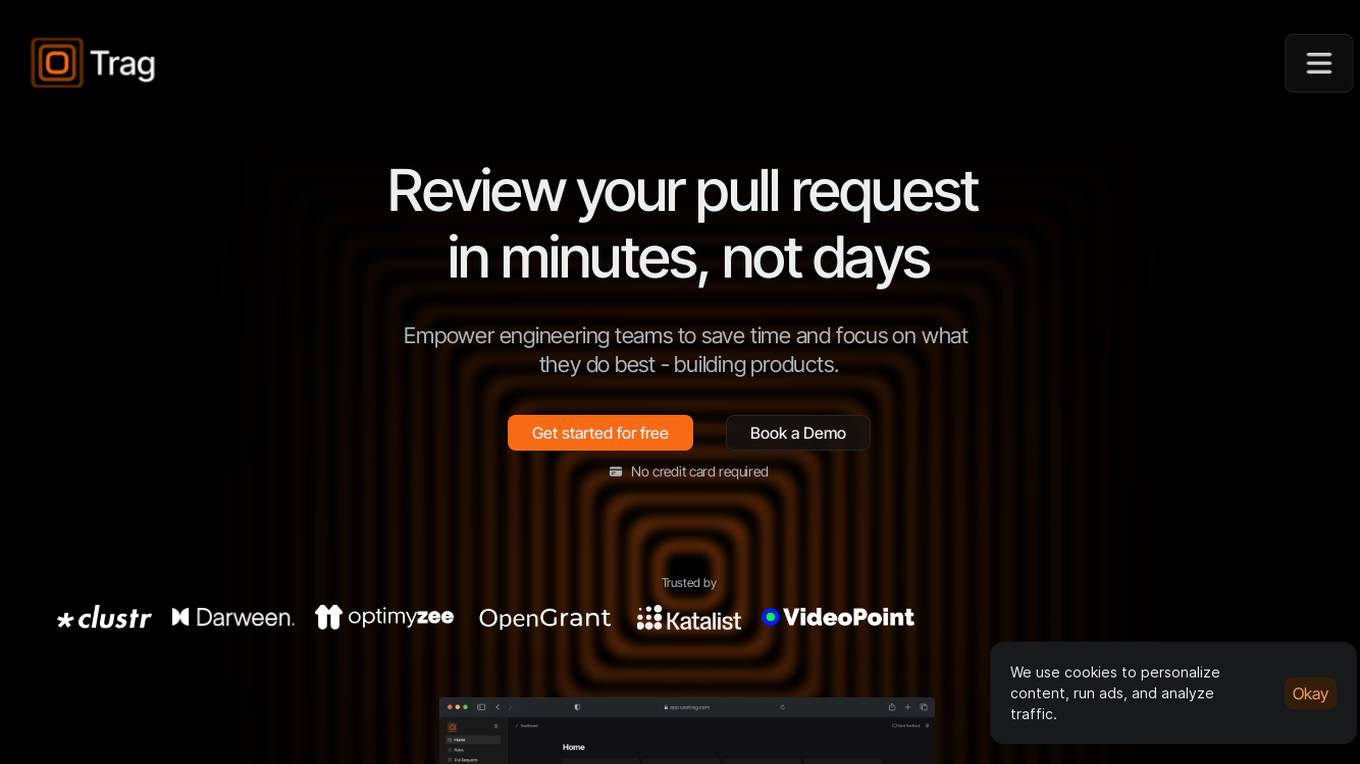
Trag
Trag is an AI-powered tool designed to review pull requests in minutes, empowering engineering teams to save time and focus on building products. With Trag, users can create custom patterns for code review, ensuring best practices are followed and bugs are caught early. The tool offers features like autofix with AI, monitoring progress, connecting multiple repositories, pull request review, analytics, and team workspaces. Trag stands out from traditional linters by providing complex code understanding, semantic code analysis, predictive bug detection, and refactoring suggestions. It aims to streamline code reviews and help teams ship faster with AI-powered reviews.
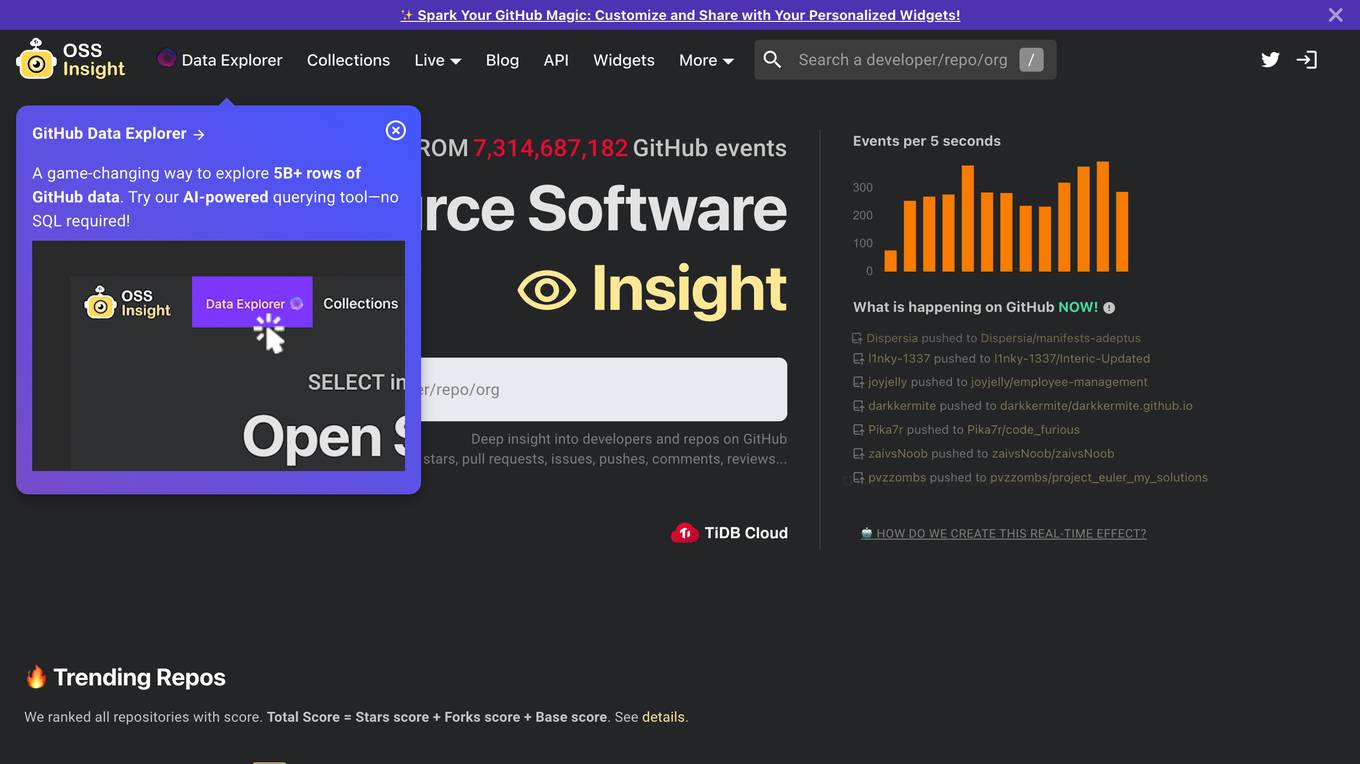
OSS Insight
OSS Insight is an AI tool that provides deep insight into developers and repositories on GitHub, offering information about stars, pull requests, issues, pushes, comments, and reviews. It utilizes artificial intelligence to analyze data and provide valuable insights to users. The tool ranks repositories, tracks trending repositories, and offers real-time information about GitHub events. Additionally, it offers features like data exploration, collections, live blog, API integration, and widgets.
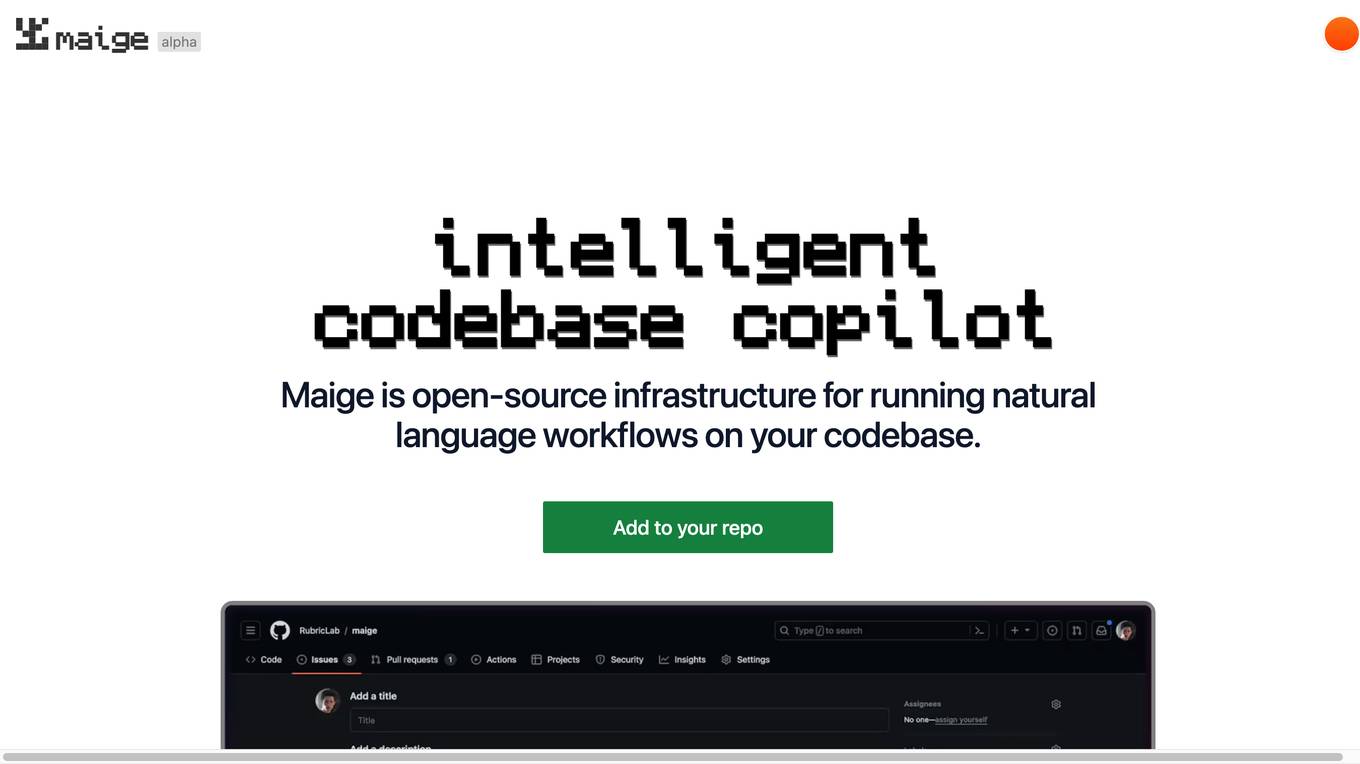
Maige
Maige is an open-source infrastructure designed to run natural language workflows on your codebase. It allows users to connect their repository, define rules for handling issues and pull requests, and monitor the workflow execution through a dashboard. Maige leverages AI capabilities to label, assign, comment, review code, and execute simple code snippets, all while being customizable and flexible with the GitHub API.

Greptile
Greptile is an AI tool designed to assist developers in code review processes. It integrates with GitHub to review pull requests and identify bugs, antipatterns, and other issues in the codebase. By leveraging AI technology, Greptile aims to streamline the code review process and improve code quality.

Maverick
Maverick is an AI tool designed as a copilot for Copilot, offering an incremental layer of automated code review for GitHub pull requests. It helps catch small issues that may go unnoticed during manual reviews. The tool is 100% free and integrates seamlessly with GitHub, providing feedback through review comments. Maverick aims to enhance the code review process by automating certain aspects and improving overall code quality.
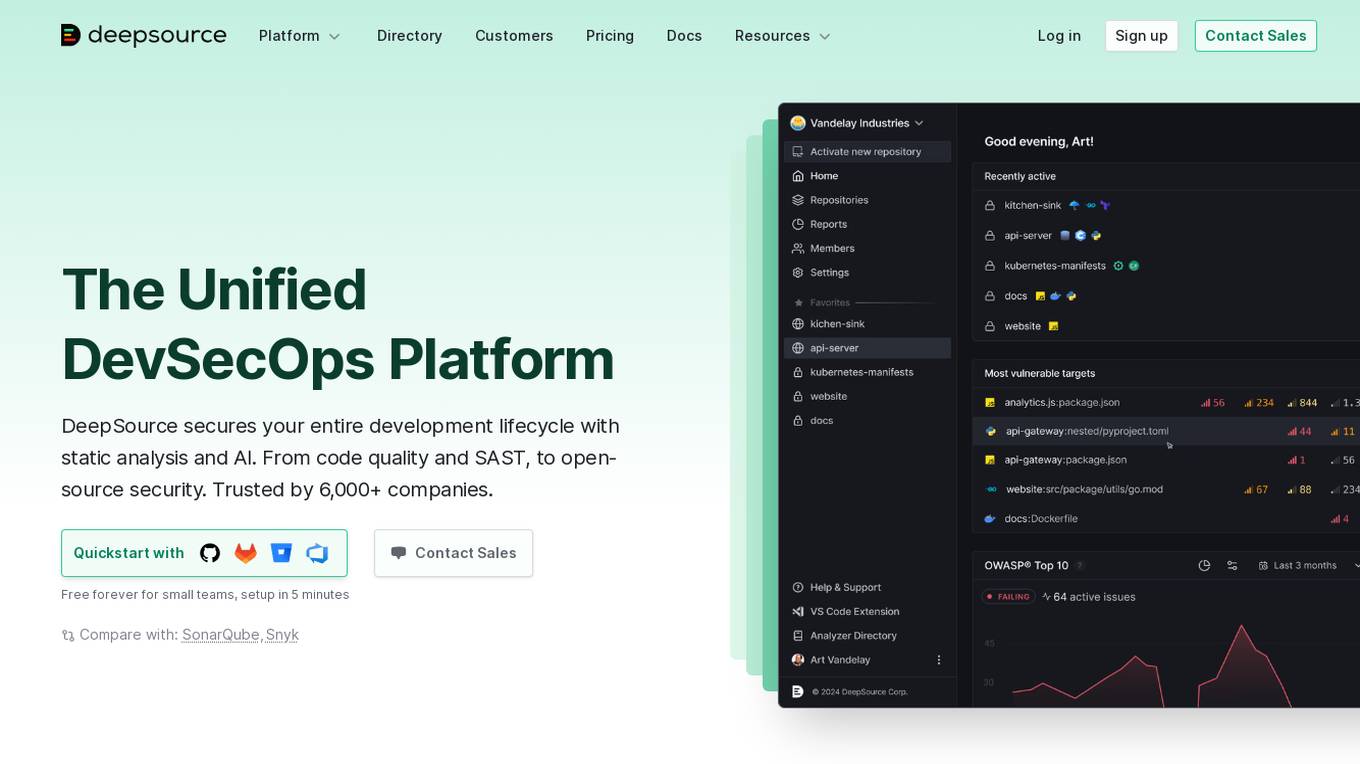
DeepSource
DeepSource is a Unified DevSecOps Platform that secures the entire development lifecycle with static analysis and AI. It offers code quality and SAST, open-source security, and is trusted by over 6,000 companies. The platform helps in finding and fixing security vulnerabilities before code is merged, with a low false-positive rate and customizable security gates for pull requests. DeepSource is built for modern software development, providing features like Autofix™ AI, code coverage, and integrations with popular tools like Jira and GitHub Issues. It offers detailed reports, issue suppression, and metric thresholds to ensure clean and secure code shipping.
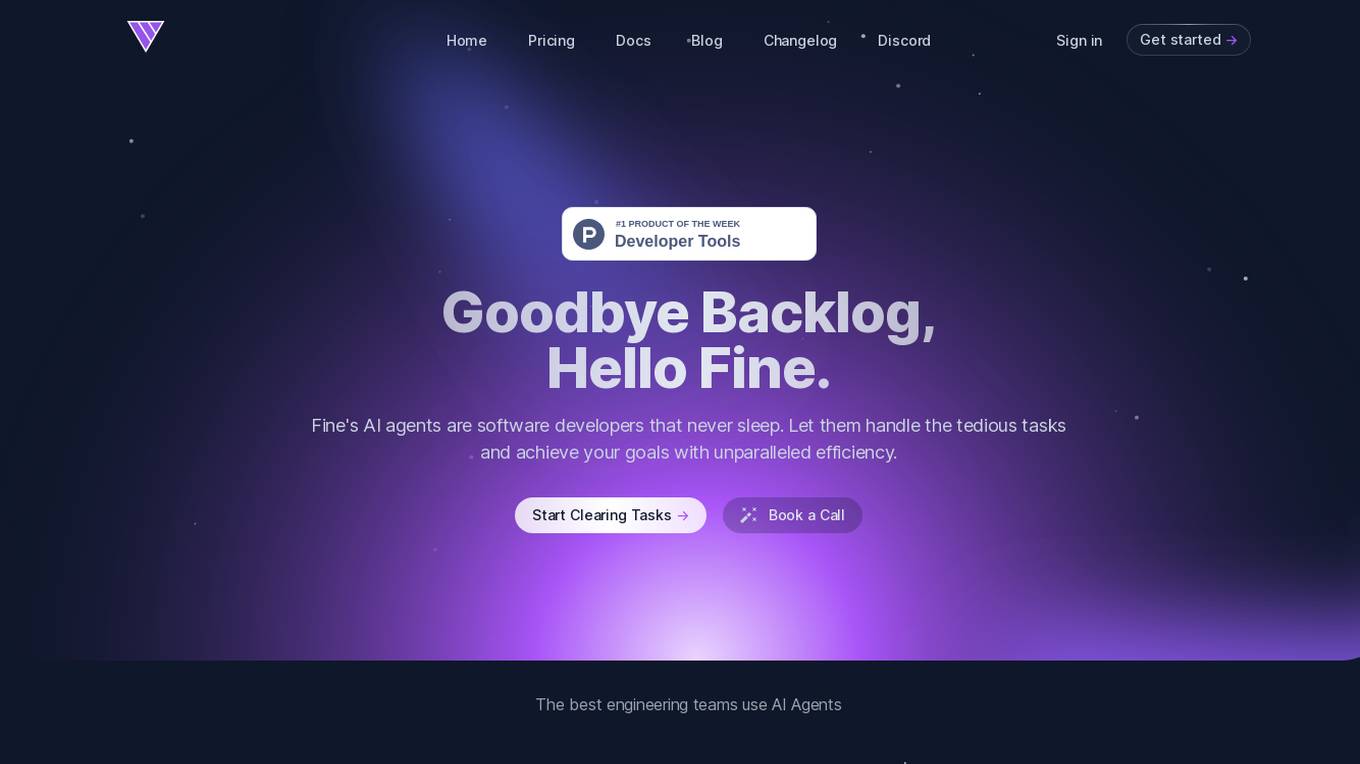
Fine
Fine is an AI-powered software development tool that automates mundane and complex tasks, allowing developers to focus on driving innovation. Its AI agents integrate seamlessly into your team and toolset, transforming your development workflow by automating tasks such as transforming Jira tickets into pull requests, streamlining code reviews, and simplifying migrations.
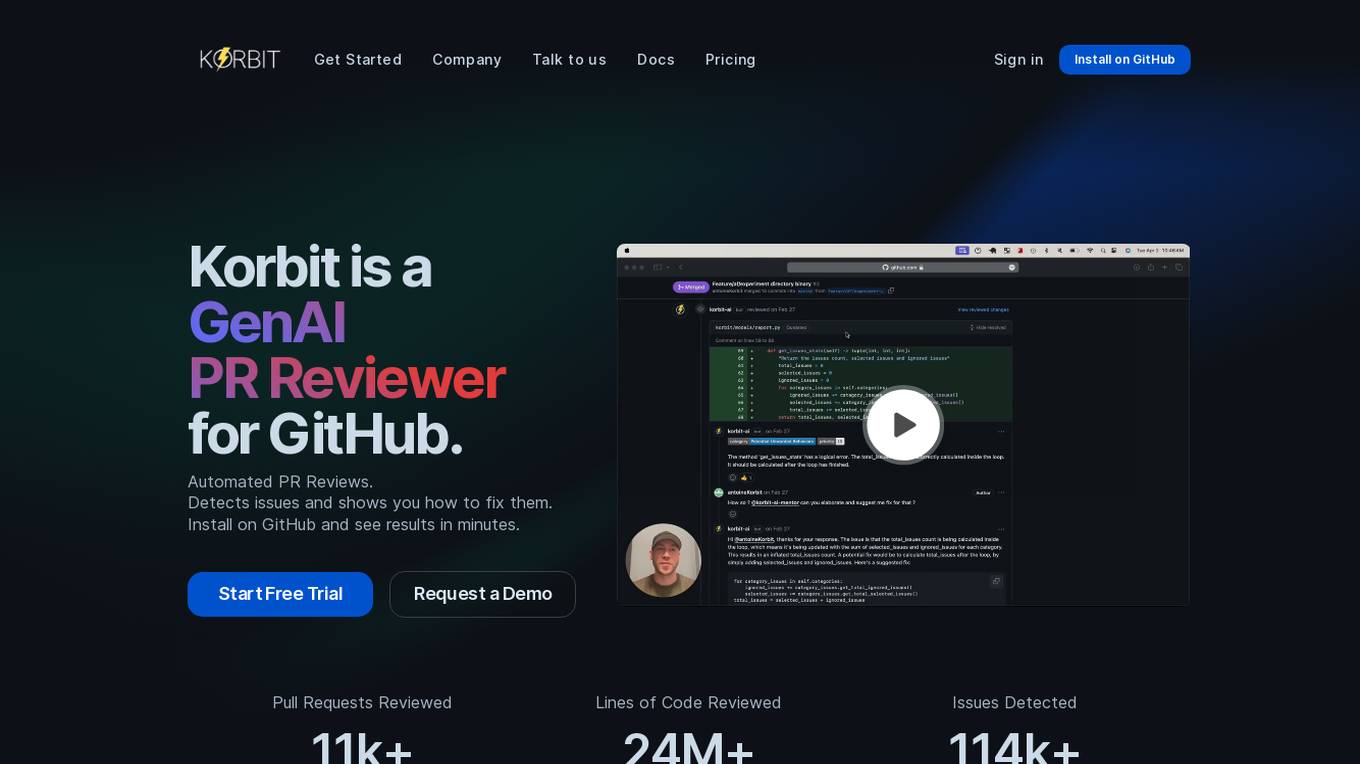
Korbit
Korbit is an AI-powered code review tool that helps developers write better code, faster. It integrates directly into your GitHub PR workflow and provides instant feedback on your code, identifying issues and providing actionable recommendations. Korbit also provides valuable insights into code quality, project status, and developer performance, helping you to boost your productivity and elevate your code.
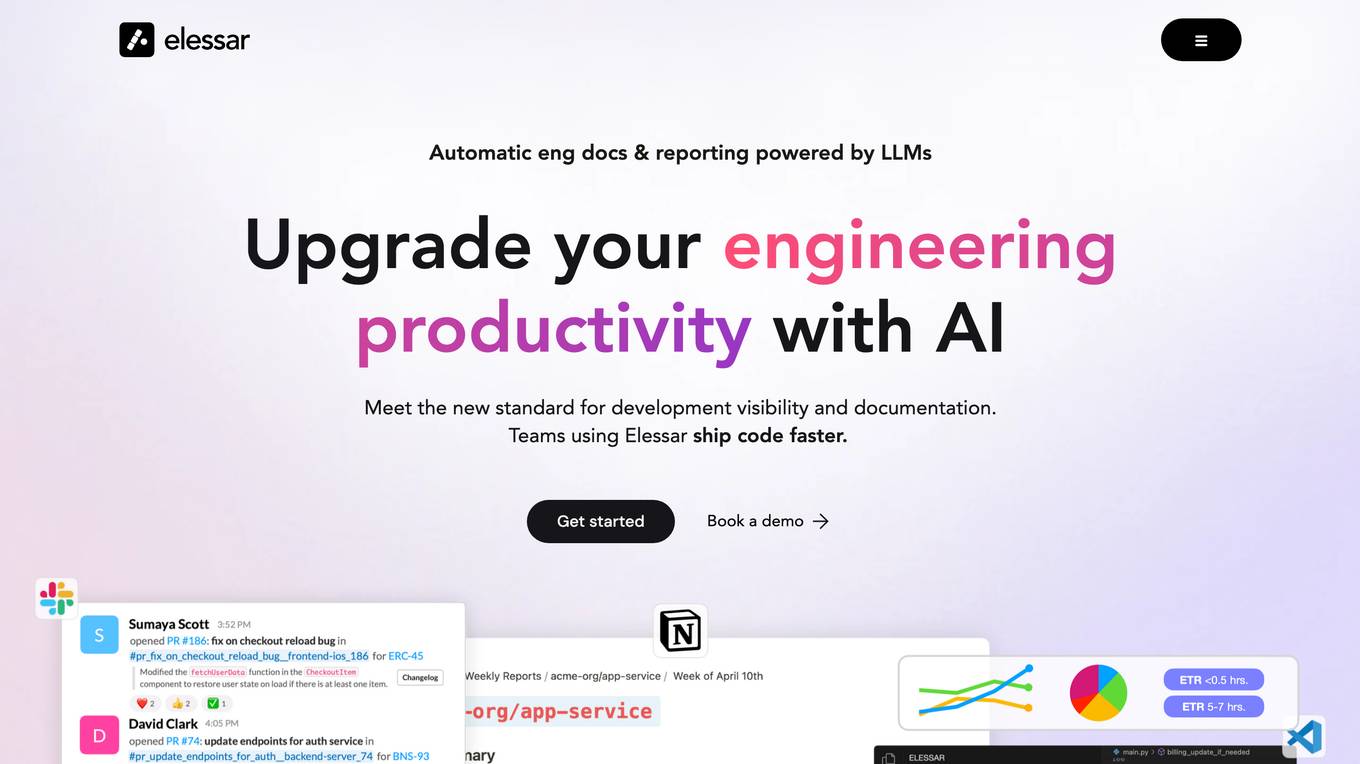
Elessar
Elessar is an AI-powered platform designed to enhance engineering productivity by providing automatic documentation, reporting, and visibility for development teams. It seamlessly integrates with existing ecosystems, generates pull request changelogs, automates Notion documentation, offers Slack bot functionality, provides VS Code extension for easy code understanding, and links with Linear for issue tracking. Elessar ensures data privacy and security by following SOC II compliant policies and encrypting data at rest and in transit. It does not use data for training AI models. With Elessar, organizations can streamline communication, improve visibility, and boost productivity.
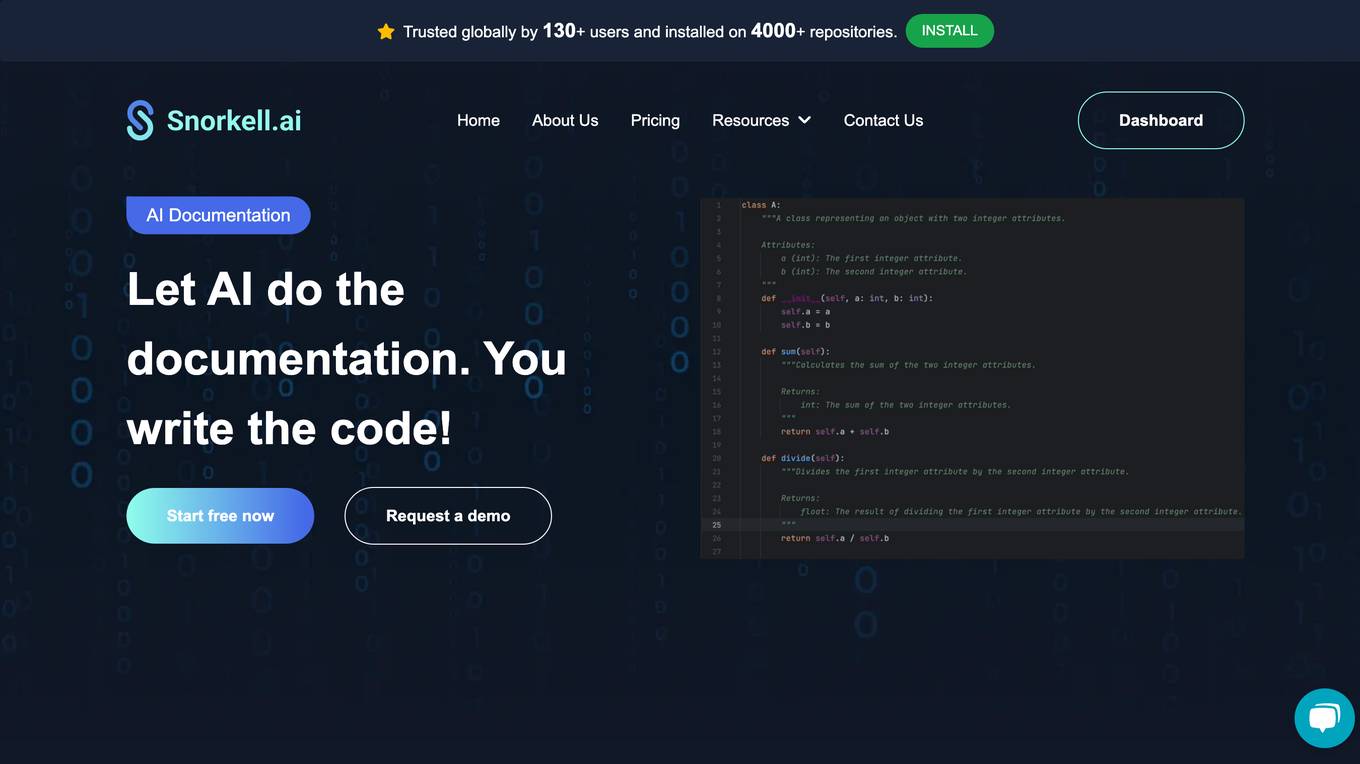
Snorkell.ai
Snorkell.ai is an automated documentation generation tool that uses AI to create and update docstrings for GitHub projects. It supports multiple programming languages, including Python, JavaScript, TypeScript, Java, and Kotlin. Snorkell.ai integrates with GitHub and automatically generates docstrings whenever a pull request is merged, ensuring that documentation is always up-to-date with the codebase. It helps developers save time and effort by automating the documentation process, leading to improved code quality and reduced onboarding time.
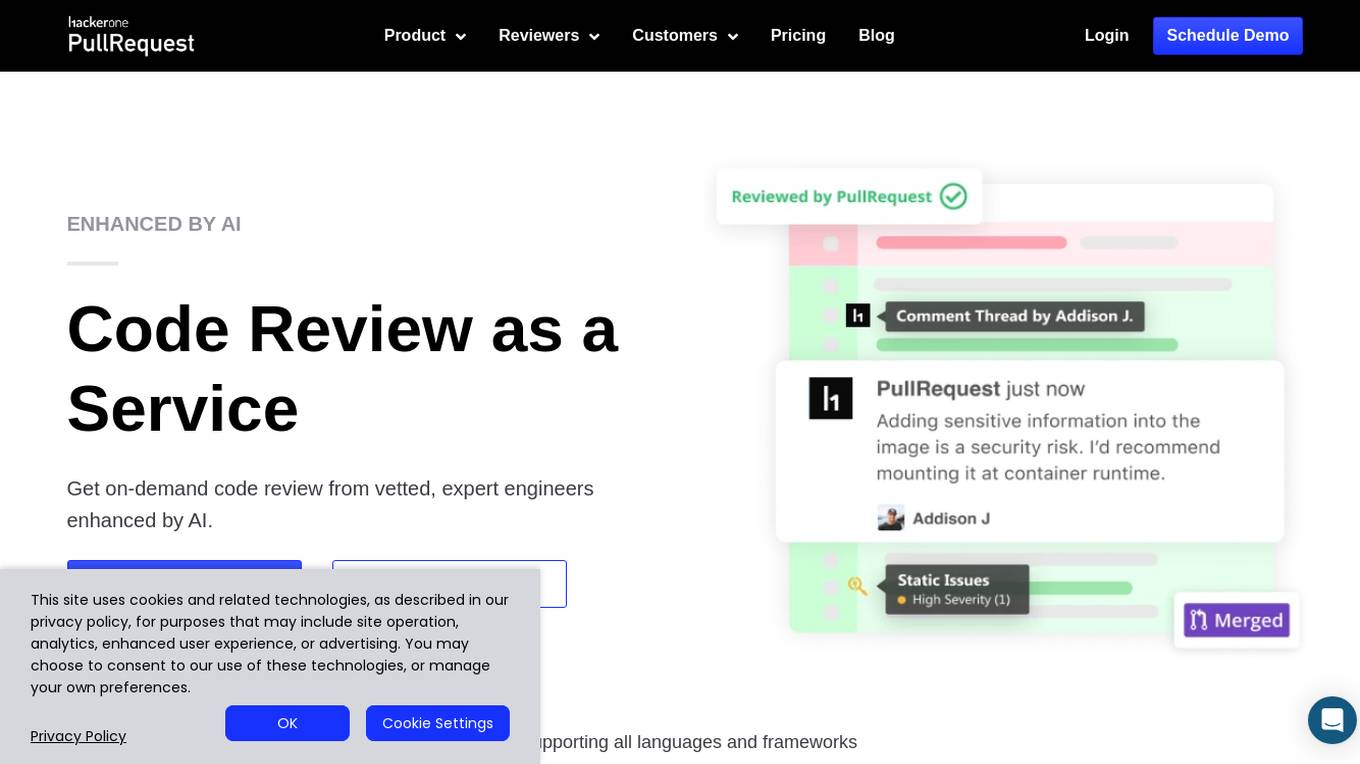
PullRequest
PullRequest is an AI-powered code review as a service platform that offers on-demand code review from expert engineers enhanced by AI. It supports all languages and frameworks, helping development teams of any size ship better, more secure code faster through AI-assisted code reviews. PullRequest integrates with popular version control platforms like GitHub, GitLab, Bitbucket, and Azure DevOps, providing valuable knowledge sharing with senior engineers to improve code quality and security. The platform ensures code safety and security by adhering to best practices, strict procedures, and employing reviewers based in the US, the UK, or Canada.
0 - Open Source AI Tools
7 - OpenAI Gpts
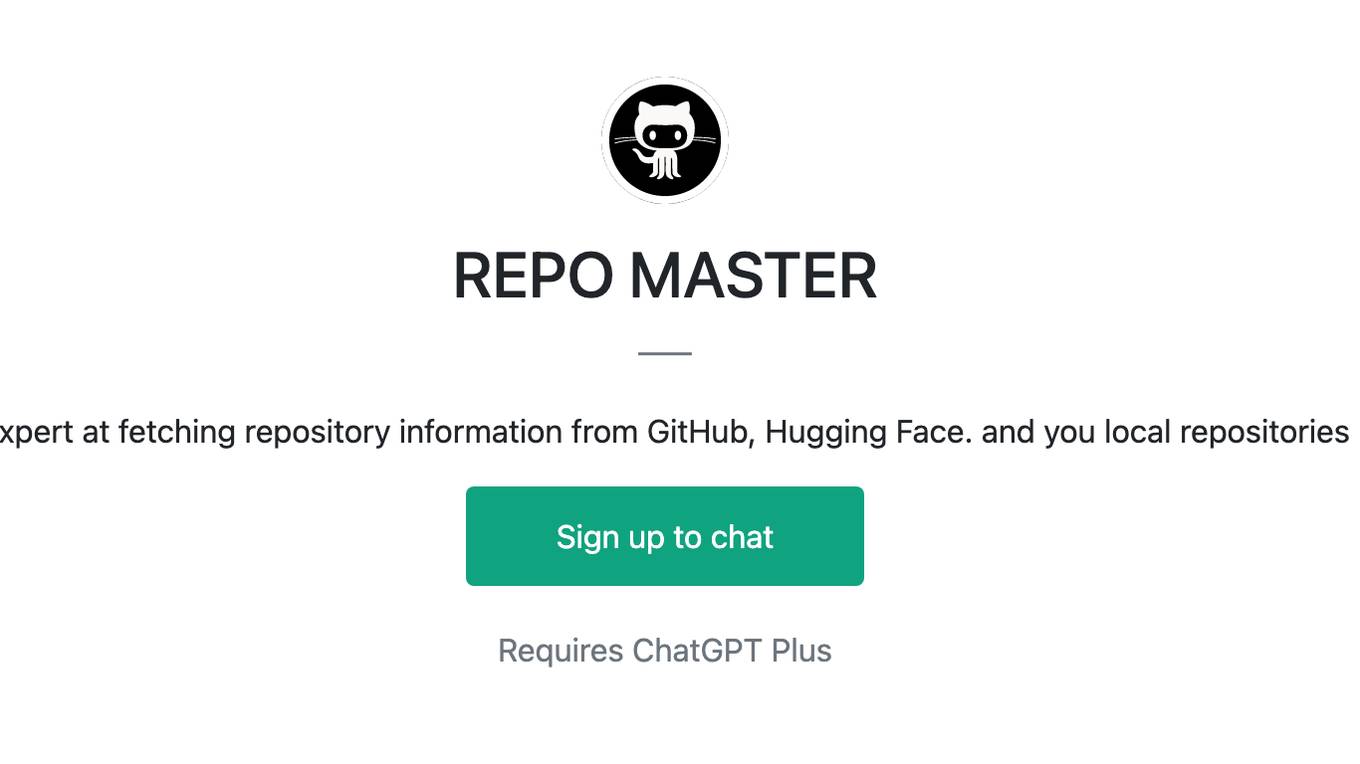
REPO MASTER
Expert at fetching repository information from GitHub, Hugging Face. and you local repositories
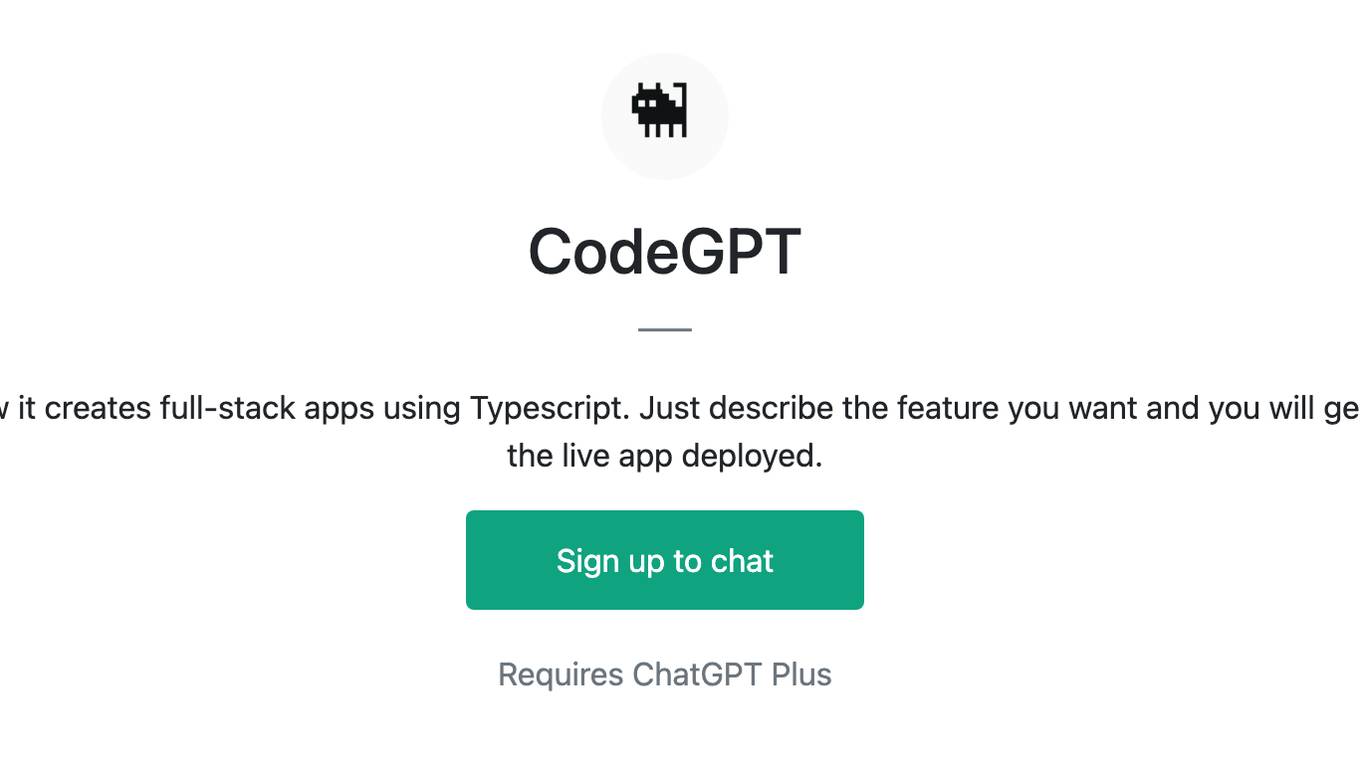
CodeGPT
This GPT can generate code for you. For now it creates full-stack apps using Typescript. Just describe the feature you want and you will get a link to the Github code pull request and the live app deployed.
